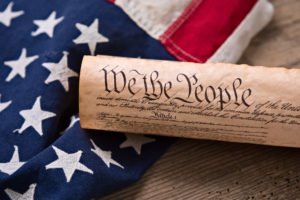William Wilson, President, Americans for Limited Government
Edwin Meese III, former Attorney General
Grover Norquist, President, Americans for Tax Reform
Susan Carleson, Chairman & CEO, American Civil Rights Union
Duane Parde, President, National Taxpayers Union
David N. Bossie, President, Citizens United
Wendy Wright, President, Concerned Women for America
T. Kenneth Cribb, former Counselor to the U.S. Attorney General
Dr. Herbert London, President, Hudson Institute
Mark Mix, President, National Right to Work Committee
David Keene, Chairman, American Conservative Union
Elaine Donnelly, President, Center for Military Readiness
Gary Bauer, President, American Values
David McIntosh, former Member of Congress, Indiana
Karen Kerrigan, President, Small Business & Entrepreneurship Council
Richard Viguerie, Chairman, ConservativeHQ.com
J. Kenneth Blackwell, former Treasurer, State of Ohio
Mathew D. Staver, Founder & Chairman, Liberty Counsel
Alfred Regnery, Publisher, American Spectator
James Martin, Chairman, 60 Plus Association
Diana Furchtgott-Roth, Senior Fellow, Hudson Institute
Brent Bozell, President, Media Research Center
(All organizations listed are for identification purposes only)
MEMO FOR THE MOVEMENT
Congress Should Oppose Labor Union Power Grab Legislation
RE: The misleadingly named “Public Safety Employer-Employee Cooperation Act” (originally H.R. 413; S. 1611, 3194). The bill would unconstitutionally abrogate all states’ sovereignty, subject state and local public-safety workers to compulsory union “representation,” eliminate local government control over the labor relations of their own workers, lead to a rise in labor strife, and further damage fragile state and local government economies by imposing unfunded federal mandates. The House approved the bill in 2007 with the support of 98 Republicans.
ACTION: Congress should reject the so-called “Public Safety Employer-Employee Cooperation Act” because the bill unconstitutionally abrogates each state’s existing right to determine the labor relations of its own and its local governments’ employees. And Congress should do so whether it is considered as a stand alone bill or as an amendment to another piece of legislation.
ISSUE-IN-BRIEF:
The bill claims to be designed to foster public-safety employer-employee cooperation. Nothing could be further from the truth. Actually, the bill’s sole aim is to grant union officials monopoly collective-bargaining control over all state and local public-safety workers, including police, firefighters and emergency medical service personnel who refuse to join, or who quit, a union and want to deal with their employer on an individual basis. In short, this bill would deny public-safety workers freedom of contract.
The bill is important to the Big Labor bosses because increasing membership in public-sector unions is a top priority. Last year – for the first time in history – public sector union membership surpassed that of private sector unions. The bill would not foster public-safety employer-employee cooperation, because union bargaining is inherently confrontational, not cooperative. This bill itself recognizes that fact by purporting to prohibit strikes. That prohibition means little. History shows that when unions are granted monopoly bargaining privileges in the public sector, strikes occur whether legal or not. Most important, this bill abrogates each state’s existing and sovereign right to order the labor relations of its own and its local governments’ employees in accordance with its elected officials’ judgment as to that state’s public interests. Today, each state is free to ban collective bargaining for its public-safety workers. The United States Supreme Court recognized that right in 1979 in Smith v. Arkansas State Highway Employees. A few states have done so. Many states have granted public employees only limited collective-bargaining privileges, or only meet-and-confer privileges that do not require binding union contracts, or have not authorized bargaining for all types of public-safety workers. In no state does any federal agency play any part in ordering labor relations for state and local government employees. This bill would authorize an unelected federal agency, the Federal Labor Relations Authority (FLRA), to determine whether each state provides certain federally mandated labor relations provisions for its and its local governments’ public-safety workers: exclusive (i.e., monopoly) bargaining representation, mandatory recognition of and so-called “good-faith” bargaining with unions for binding and court-enforceable agreements covering federally specified subjects, and “an interest impasse resolution mechanism.” Thus, to avoid having an unelected federal agency regulate and oversee their public-safety employees’ labor relations, some 26 states would either have to enact entire new labor relations schemes that comply with federal mandates or amend their existing bargaining regimes for public-safety workers. The bill clearly constitutes a constitutionally suspect federal abrogation of state sovereignty. As the U.S. Supreme Court said in Printz v. United States (1997), “the Federal Government may not compel the States to implement, by legislation or executive action, federal regulatory programs.” That is effectively what this bill would do. There also is a serious question as to whether this bill is within the constitutional authority of Congress under the Commerce Clause. “It (the bill) represents an unprecedented federal intrusion into state and local decision making, potentially disrupts our nation’s carefully developed emergency response functions and raises serious constitutional questions under the Tenth Amendment” stated Secretary of Labor Elaine Chao, Attorney General Michael Mukasey and Homeland Security Secretary Michael Chertoff in a May 2008 letter to Senate leaders.
FOR ADDITIONAL INFORMATION ON THE SO-CALLED “PUBLIC SAFETY EMPLOYER-EMPLOYEE COOPERATION ACT” PLEASE VISIT THESE WEBSITES:
National Right to Work Committee Fact Sheet: Police and Fire Monopoly-Bargaining Bill: Bad News For Public Employees, Taxpayers
Robert Bluey, The Heritage Foundation: Will Congress Kill Volunteer Fire Departments as Sop to Unions?
National Institute for Labor Relations Research Fact Sheet: Governors’ Bi-Partisan Message to Congress: Don’t Federalize Public-Safety Union Monopoly
Secretary’s Chao, Chertoff and Attorney General Mukasey 2008 letter of opposition to Senate leaders: www.getliberty.org/files/PublicSafetyEmployeesLetter.pdf
James Sherk, Heritage Foundation Senior Policy Analyst in Labor Economics: Another Taxpayer Handout to Organized Labor
Reihan Salam, National Review Online: On the Public Safety Employer-Employee Cooperation Act
James Sherk, Public Safety Employer-Employee Cooperation Act: The Heritage Foundation 2009 Labor Boot Camp
National League of Cities, Reject Mandatory Collective Bargaining
Joint Letter of National Association of Counties et al. in Opposition to the Public Safety Employer-Employee Cooperation Act, http://admin.naco.org/legislation/policies/Documents/Labor%20and%20Employment/CollectiveBargainingOpposition_S3194.pdf







